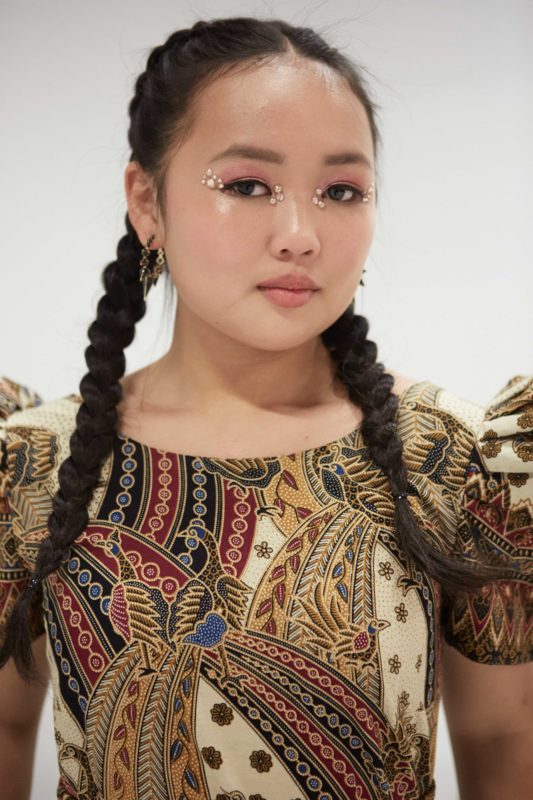Ella Jay Basco’s new music video tackles colorism

WATCH: Ella Jay Basco’s “Gold.”
Ella Jay Basco and her brother Darryl had previously written songs about her Filipino and Korean roots. But they had never written a song that spoke to brown and Black ethnic women.
That inspired them to write “Gold,” a song about Pinay pride and embracing their golden skin, featuring Filipino American rapper and spoken word artist Ruby Ibarra. The track came out earlier this year, and a music video for the song was released on Thursday.
The 14-year-old Filipino Korean American actress and singer/songwriter, who made her film debut in the 2020 movie Birds of Prey, said the song and music video come at a particularly important time when the Asian American community has seen a rise in anti-Asian hate crimes, rhetoric and incidents.
“I think it’s the perfect time to release something that’s so uplifting because our community is receiving hate crimes,” Basco said. “And I think that when people watch this, they can see that we’re a community of love and we’re a community of pride — that we’re not just some model minority.”
In conceptualizing the music video for the song, Basco said she had the idea of starting it off with a period piece. It was an idea that the video’s director, Leslie Alejandro, was on board with.
The video starts with a skin whitening commercial for “Brown Be Gone” soap in the 1950s. It then showcases various images and videos, including some of Basco’s home videos, an image of a sign that reads “Positively No Filipinos Allowed” and an image of a newspaper article about the anti-Filipino Watsonville Riots of 1930. Basco and Ibarra are seen dancing in the video as well.
Ibarra, who wrote and rapped a verse in the song, said she instantly fell in love with the track Basco co-wrote and produced with her brother when she first heard it. She added that the message of the song was in line with the work she’s been doing and what she aims to achieve with her music.

Ella Jay Basco. (Photo Courtesy of Leslie Alejandro)
When she wrote her verse for the song, Ibarra said she put herself in the shoes of a young woman of color and imagined the societal pressures of accepting who you are and learning how to love yourself.
“Brown girl, gold crown, watch me hold down” is a lyric she wrote that stands out most to her. Through it, she wanted to emphasize that although women of color are often overlooked or placed in the background in media, all skin tones need to be embraced.
“These women need to embrace it, and especially if you’re brown skinned, you need to hold your head up high and claim the crown on your head,” she said.
Ibarra added that having someone like Basco singing the song is powerful.
“She represents the next generation of young, bold, fearless Asian American women,” Ibarra said. “To have a role model already, for younger girls, for younger generations, I think that’s already a statement within itself.”
Basco noted that everyone involved in the project — both behind and in front of the camera — is Asian American. Most of the cast and crew were women, and it also included individuals who identify as LGBTQ.
“Because this is a video honoring our AAPI community, we really wanted to make sure that we represented all communities throughout this video because it’s such an important topic that we’re speaking about,” she said.
Basco added that she hopes that young girls of color who watch the video and hear the song feel a sense of empowerment and pride in their culture.
She also hopes it spreads awareness about the skin whitening industry.
“It’s really such a messed up industry because they’re telling girls to lighten their skin to be more socially accepted,” Basco said.
Ibarra said that in addition to the messages around culture and identity in the song, one of the key takeaways she hopes for audiences is that everyone’s individuality is what makes them beautiful and powerful.
“Whatever background may come from, whatever skin tone you may have, ultimately, your authentic self is what makes you special,” she said.

